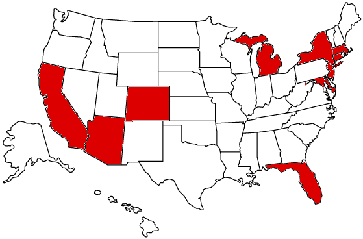 David Goren is a radio producer and journalist with an inherent love of radio sound. I originally found him through his blog, Shortwaveology, which documents interesting finds on the shortwave radio spectrum, whether it be curious programming from a variety of international origins or ephemera like clicks, buzzes, and interval tones. Goren spent time at Wave Farm last year for a residency in which he explored the sun’s effect on shortwave radio propagation.
David Goren is a radio producer and journalist with an inherent love of radio sound. I originally found him through his blog, Shortwaveology, which documents interesting finds on the shortwave radio spectrum, whether it be curious programming from a variety of international origins or ephemera like clicks, buzzes, and interval tones. Goren spent time at Wave Farm last year for a residency in which he explored the sun’s effect on shortwave radio propagation.
Goren also lives in the Ditmas Park section of the Flatbush neighborhood in Brooklyn – which just so happens to be one of the hottest spots for unlicensed AM and FM broadcasting in the New York metropolitan area. A few years back he invited me to his house, where I drooled at the listening post he’d set up to scan the bands for pirate signals, including a plethora of antennae and receivers with computers set up to record stations. Continue reading “Brooklyn Pirate Radio Sound Map Seeks to Expand Citywide”
Tag: queens
FCC on Pirate Radio: From Paper Tiger to Puffer Fish
At the 2018 NAB Show in Las Vegas last month, FCC Chairman Ajit Pai highlighted the agency’s extensive efforts to combat unlicensed broadcasting. In addition to announcing that, in 2017, the agency issued “210 Notices of Unlicensed Operation” (I can only confirm 171), Pai said the agency “fined illegal broadcasters $143,800” (it’s actually $158,800) and “proposed fines totaling $323,688” (it’s actually $204,344). He also mentioned the recent raid of pirate stations in Boston, and reported “that we recently took similar action against a pirate operator in Miami and another operator in Queens, New York.”
 Considering that station-raids tend to generate a lot of publicity, both among local media in affected markets and in the radio industry trade-press, I was surprised that the Queens and Miami raids have not been reported on at all. This may be because they didn’t actually happen – or happened on dates and at times that don’t fit Chairman Pai’s narrative. In addition, further information has come to light that casts doubt on just how effective the FCC’s recent activity in Boston really was.
Considering that station-raids tend to generate a lot of publicity, both among local media in affected markets and in the radio industry trade-press, I was surprised that the Queens and Miami raids have not been reported on at all. This may be because they didn’t actually happen – or happened on dates and at times that don’t fit Chairman Pai’s narrative. In addition, further information has come to light that casts doubt on just how effective the FCC’s recent activity in Boston really was.
First, let’s break down the Queens case. This involves a guy by the name of Jose Luis Gerez and a station he used to run (and actually may still be running) called “Mambo FM.” According to an unsealed complaint dated last November, this station first appeared on the FCC’s radar in July 2013, when agents in the New York field office observed “what appeared to be an unlicensed broadcast station operating at 95.1 MHz in Queens, New York.” They tracked the signal to an apartment building on Gleane Street, less than a three-mile drive from LaGuardia Airport. After interviewing the superintendent of the apartment building, agents found an FM antenna on the roof with a coaxial cable running into the basement, where a transmitter and desktop computer providing the station’s programming was found. Agents sent a Notice of Unlicensed Operation to the property-owner, who subsequently reported that the station had been removed from the premises. Continue reading “FCC on Pirate Radio: From Paper Tiger to Puffer Fish”
In Face of Downsizing, Are FCC Agents Pulling Back?
Can’t say for sure, but the latest update to the Enforcement Action Database seems to suggest it, as the agency considers drastically cutting their already meager ranks. As of the end of April, there’ve been just 35 enforcement actions against 17 stations in four states. There has been no official report of field activity in May. In 2014, there were 52 enforcement actions in the same time-frame.
 2014 saw the lowest level of FCC enforcement activity against unlicensed broadcasters in nearly a decade. Where agents are active, New York continues to lead the way, followed by New Jersey and California. A station in Colorado also got a warning letter this year, but that was a follow-up to a visit last year. Continue reading “In Face of Downsizing, Are FCC Agents Pulling Back?”
2014 saw the lowest level of FCC enforcement activity against unlicensed broadcasters in nearly a decade. Where agents are active, New York continues to lead the way, followed by New Jersey and California. A station in Colorado also got a warning letter this year, but that was a follow-up to a visit last year. Continue reading “In Face of Downsizing, Are FCC Agents Pulling Back?”